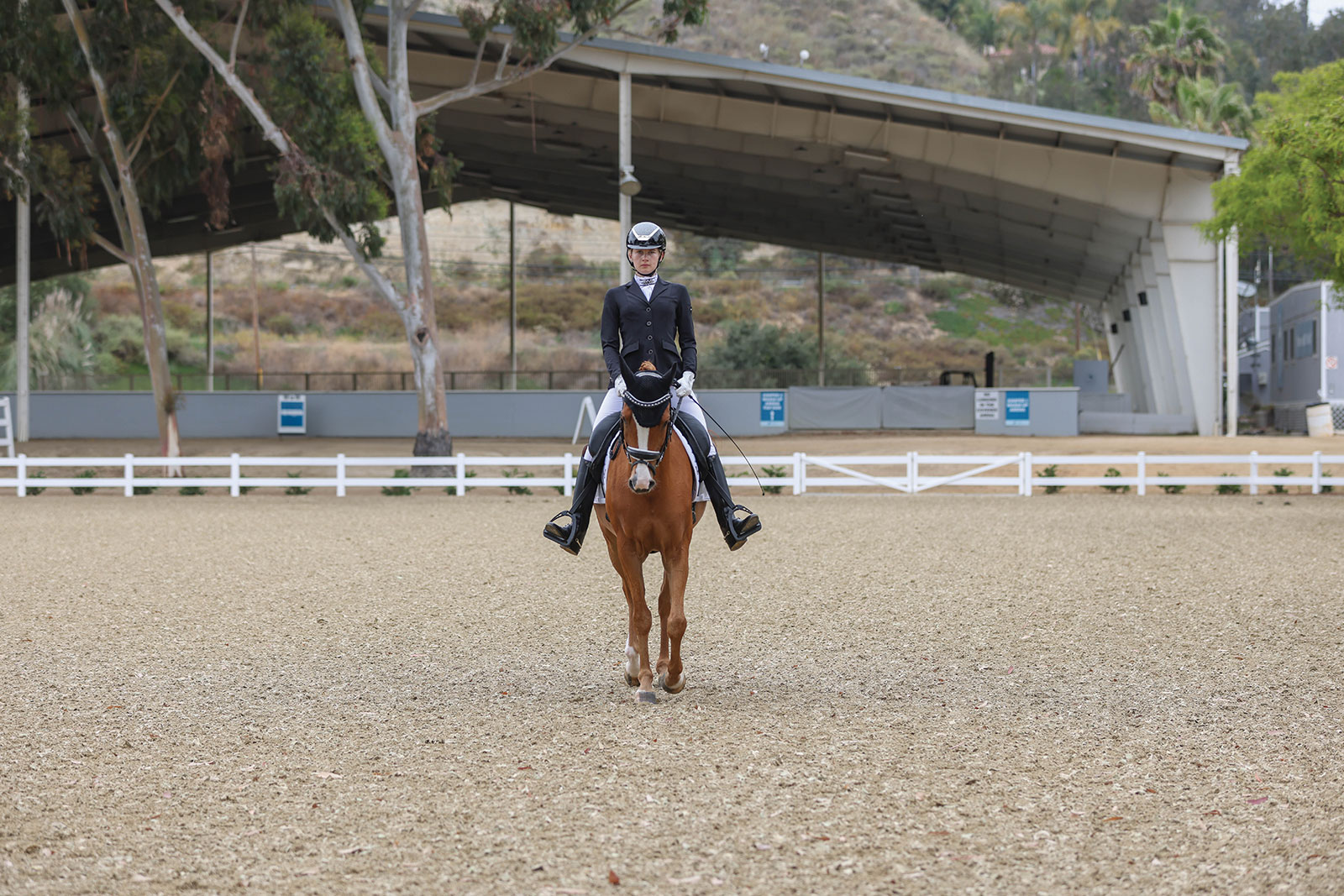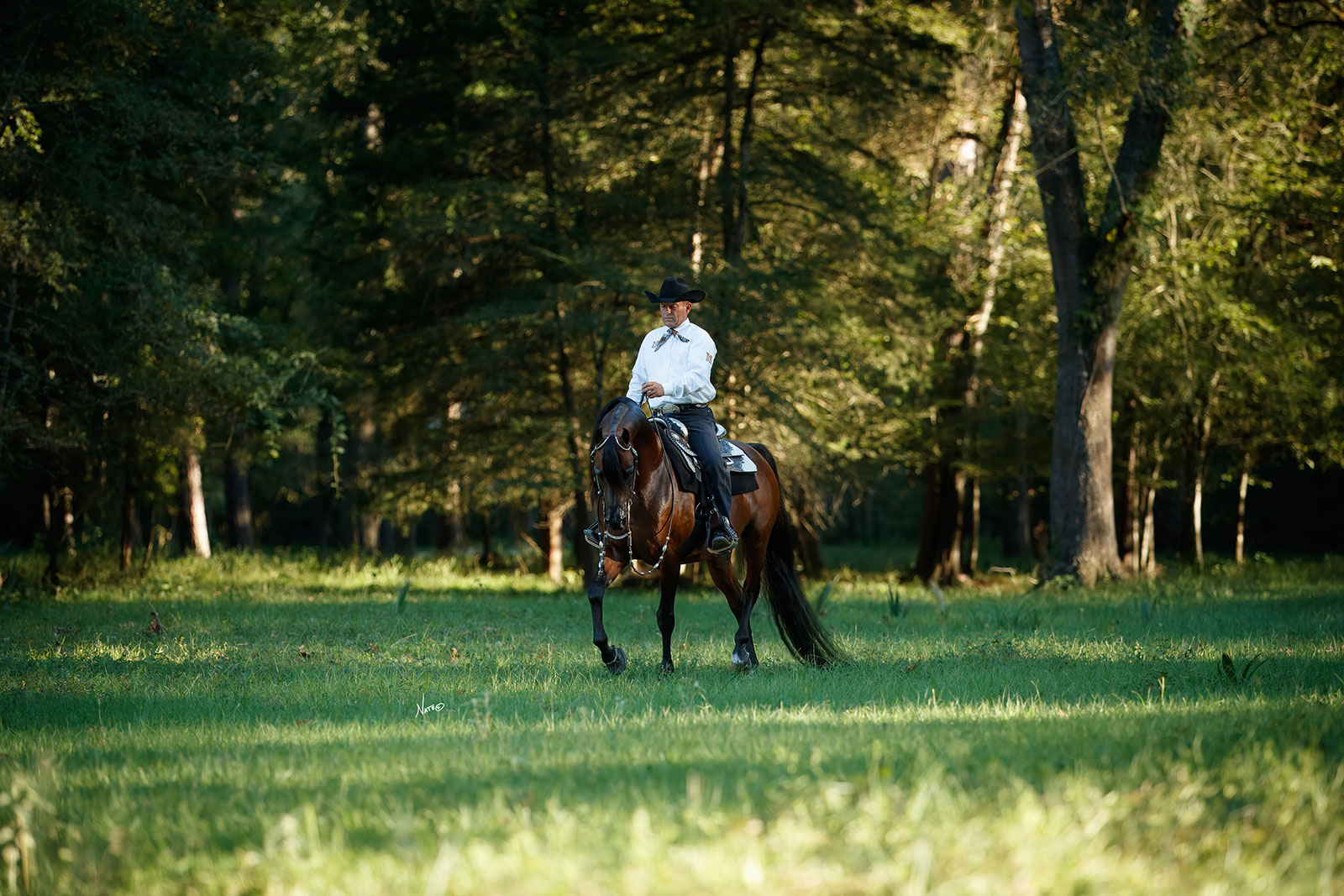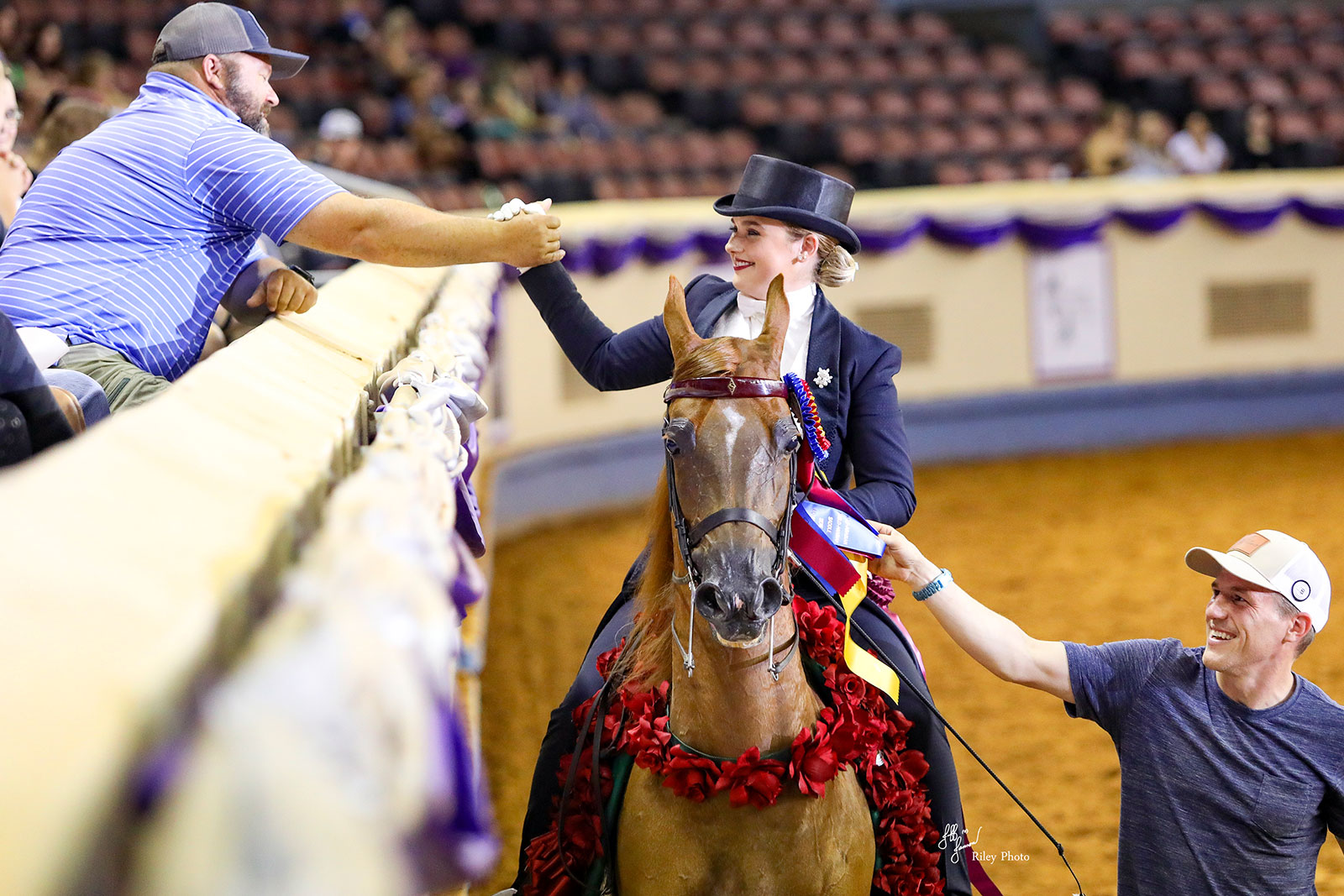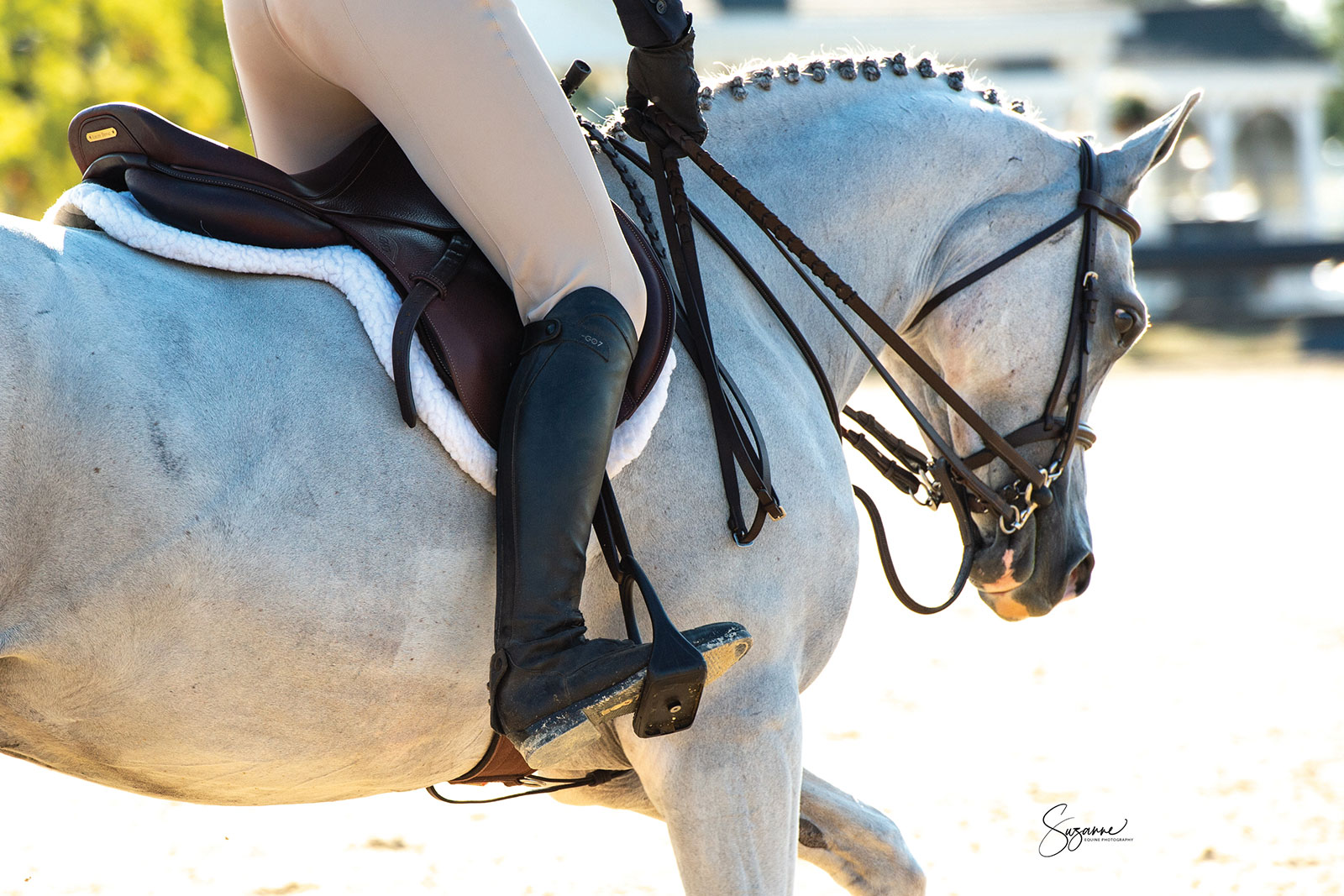By Brianna York
As featured in the Summer 2024 issue of Arabian Horse World
The cost of lessons and full-time training for show horses is always one of the most significant considerations for horse owners. Seeking to further your knowledge and be prepared to succeed in the show ring can be expensive in many ways. As the costs of every aspect of horse ownership have gone up, trainers have also had to increase their training and lesson fees to keep pace.
The Arabian breed has long been lauded as perfect for the amateur rider. Beyond their amazing temperaments, our beloved Arabians are also smart, confident, and easy to teach new skills to. This makes them an ideal fit for the Sport Horse arena, where many people choose to do most of their own training. Self-sufficiency is a key aspect of the Sport Horse world, and Arabians are perfectly suited to this arrangement in most cases.
The short answer is that every rider needs a trainer. Everyone should consider the support of a skilled professional a necessary part of their riding routine. However, there are some differences between the structure of Sport Horse and main ring showing, which make it an ideal venue for those who love to be hands-on with their horses.
Sport Horse, as a niche, has always encouraged self-reliant amateur riders who can do at least part of their training work on their horses. This doesn’t mean that you need to pressure yourself to become your own colt breaker or that you need to try and have all the answers to everything all the time. However, suppose you enjoy daily riding and training supported by good instruction. Sport Horse is probably the place for you.
Many dressage and jumping trainers fully expect their students to want to ride their horses at least a few days a week. They also hope their clients will want to receive much of their instruction via riding lessons. While there is nothing wrong with seeking a trainer to ride your horse daily for you, the Sport Horse division is ideal for those who love to do most of their training work.
Class Guidelines Based on a Training Scale
Particularly in the case of dressage, the expectations for horses in the competition arena are based upon a set training scale. This training scale explains what skills horses need to have to compete at each dressage level. This makes it very easy for those who are riding on their own throughout the week to meet the demands dictated by the current level of test they are riding.
The training scale proceeds from simple suppleness in the horse to true collection and self-carriage. This often makes it very clear to amateur riders what their goals should be throughout each show season. Similarly, the hunter/jumper and jumper classes have precise and concrete expectations that are easy to define and follow.
These guidelines, based on tradition but backed by an understanding of how horses develop physically over time, help make Sport Horse competitions much more straightforward to train for if you do not have your horse in full-time training. For riders who want to know their horse inside and out and do a lot of the training on their own, these clear expectations are a significant benefit.
Sport Horse Makes it Easy to be a Hands-On Amateur
Each training program will guide you on how many lessons you should expect to need per week or month to be ready to compete. Horse owners need to remember that each horse and rider combination has different needs, and the timeline for success can be very different from one rider to another or even from one horse to another. Sport Horse trainers are often very versed in setting expectations and can help you determine how much support you need to meet your goals.
Whether you want to earn your dressage medals or increase your skills to the point where you are ready to move up to different divisions in the over-fences class, regular lessons and guidance are essential. The Sport Horse division is a great place to enjoy hands-on learning opportunities and daily bonding time with your equine partner.






